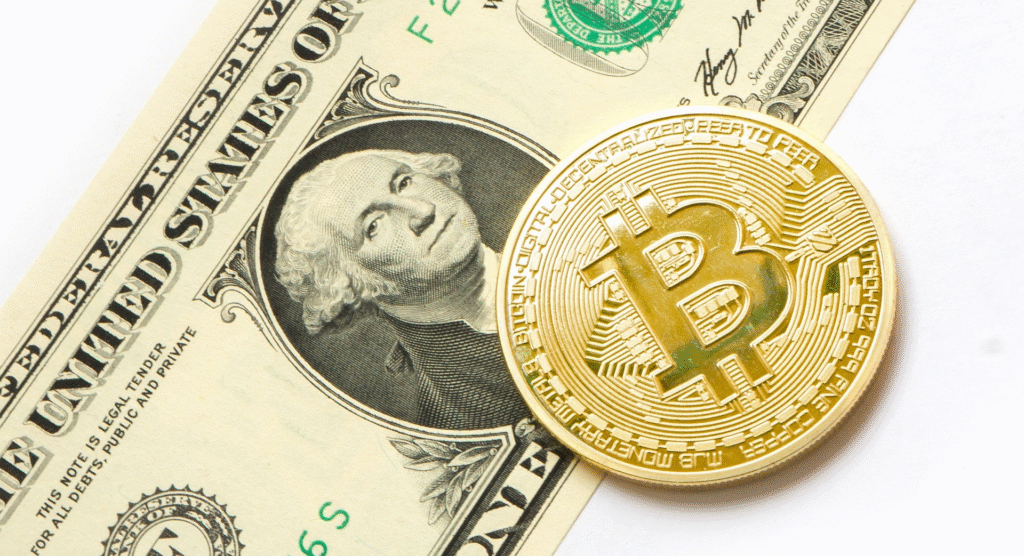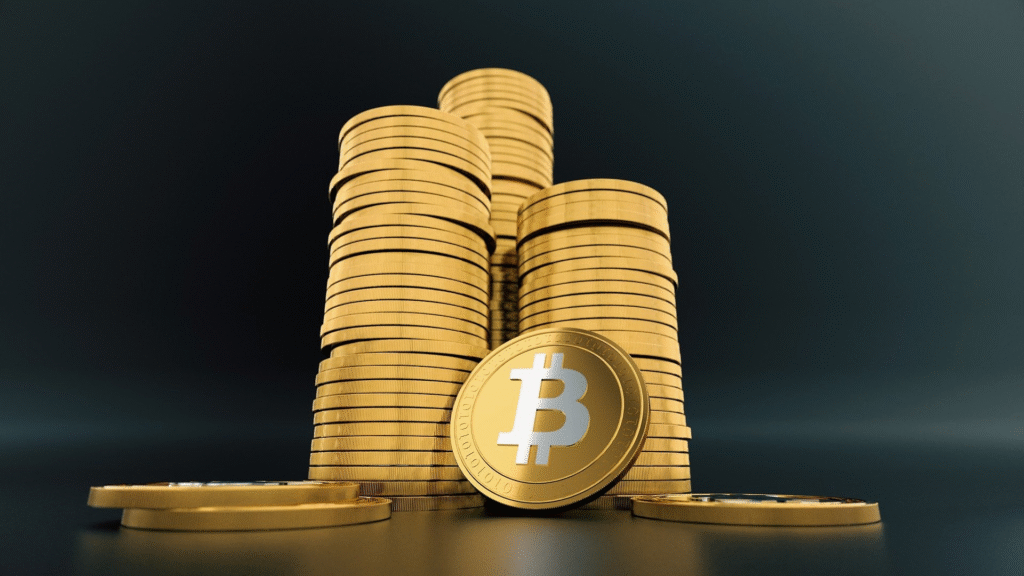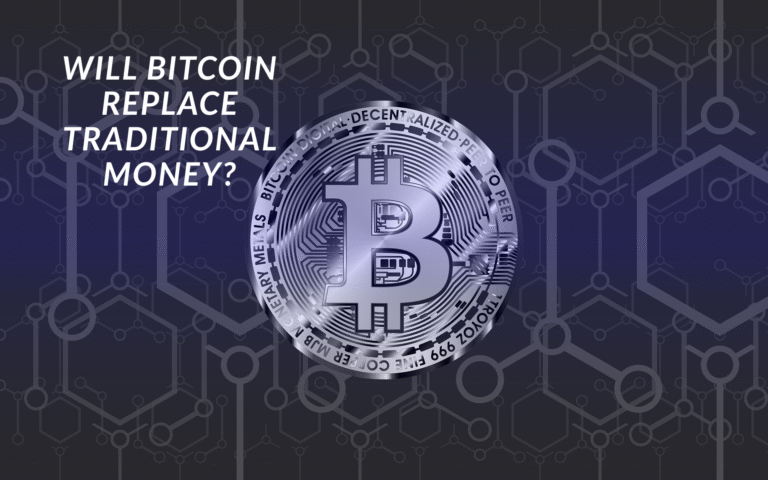Will Bitcoin Replace Traditional Money?: Bitcoin has been a disruptive financial innovation from its inception in 2009, upending the fundamental tenets of conventional currency. Bitcoin offers an alternative to fiat currencies, which are governed by governments and central banks, due to its decentralized nature, fixed supply, and global accessibility.
Will Bitcoin Replace Traditional Money?: Proponents contend that it is a transparent, inflation-resistant digital asset that embodies the financial future. However, its volatility, scalability problems, and regulatory ambiguity are cited by critics. As more people, organizations, and even countries adopt Bitcoin, the question arises whether it will eventually replace fiat currency completely or continue to function as a supplementary system with a distinct role in the financial industry.
Will Bitcoin Replace Traditional Money?

Will Bitcoin Replace Traditional Money?: Since its inception in 2009, Bitcoin has sparked global debates about the future of money. As a decentralized digital currency, Bitcoin presents an alternative to traditional government-issued (fiat) money. With a fixed supply, peer-to-peer nature, and growing global recognition, many wonder: Could Bitcoin eventually replace traditional money? While Bitcoin’s rise is undeniable, replacing fiat currency is a complex issue. This article explores Bitcoin’s potential, the challenges it faces, and whether it could realistically become a mainstream form of money.
What Makes Bitcoin Appealing as a Currency?
(1) Decentralization.
The decentralized nature of Bitcoin is one of its greatest features. Bitcoin is managed by a dispersed user network, in contrast to conventional currencies that are regulated by central banks. By doing this, middlemen are removed, transaction costs are decreased, and the possibility of governmental meddling is decreased.
(2) Fixed Supply.
There are only 21 million Bitcoins. In sharp contrast to fiat currencies, which may be created in infinite quantities, it is resistant to inflation because to its set supply. Bitcoin is viewed by many as a hedge against careless monetary policy and currency devaluation.
(3) Global Accessibility.
Anyone with an internet connection can access Bitcoin, which has no geographical restrictions. Bitcoin offers a different way to store and transfer value in nations with erratic currencies or inadequate banking systems.
(4) Transparency and Security.
A public blockchain records every Bitcoin transaction, guaranteeing transparency. Furthermore, it is extremely safe from manipulation and fraud thanks to its consensus method and cryptographic design.
Why Bitcoin Hasn’t Replaced Traditional Money (Yet).

Despite its strengths, Bitcoin still faces several obstacles that prevent it from replacing fiat currencies.
(1) Volatility.
The price of bitcoin fluctuates a lot. It is unreliable as a stable means of trade or store of value due to abrupt changes. Predictable economic transactions cannot be supported by a currency that fluctuates by 10% every day.
(2) Scalability Issues.
Unlike Visa, which handles over 24,000 transactions per second, Bitcoin’s network processes just about seven. Bitcoin is not yet ready for extensive transactional use at scale, despite efforts to increase scalability with solutions like the Lightning Network.
(3) Regulatory Hurdles.
There are differing opinions among governments regarding Bitcoin. Some people support it, while others prohibit or outlaw it. Uncertainty in regulations deters broad adoption and makes integrating it with the established financial system more difficult.
(4) User Experience.
Technically, Bitcoin is still difficult for the typical user. Transaction fees, private keys, and wallet administration cause friction that is absent from traditional money. Bitcoin will not be widely used until it is as easy as using a credit card.
The Role of Bitcoin Today.
Rather than replacing money entirely, Bitcoin currently serves several important roles:
(1) Store of Value (“Digital Gold”).
Bitcoin is viewed by many as a digital gold that can be used as a hedge against inflation and unstable economies. This is why businesses like Tesla and MicroStrategy, as well as institutional investors, have included Bitcoin on their balance sheets.
(2) Cross-Border Payments.
In regions with limited access to banking or where international transfers are slow and expensive, Bitcoin offers a fast and borderless alternative.
(3) Inflation Hedge in Developing Countries.
Growing interest in Bitcoin as a safer way to keep value has been observed in hyperinflation-affected nations including Venezuela, Zimbabwe, and Argentina.
(4) Decentralized Finance (DeFi).
Bitcoin also plays a role in the growing DeFi ecosystem, enabling users to lend, borrow, and earn interest without traditional banks.
Could Bitcoin Replace Fiat in the Future?
Bitcoin could become a dominant global asset, but replacing fiat entirely is unlikely in the near term. Here’s why:
(1) Governments Won’t Easily Relinquish Control.
One of a government’s most potent weapons is money. It makes economic control, monetary policy, and taxation possible. Few countries will embrace the threat to national sovereignty posed by replacing state currencies with a decentralized alternative.
(2) Central Bank Digital Currencies (CBDCs).
Government-issued digital currencies, or CBDCs, are being developed in numerous nations. These maintain governmental control while providing some of the advantages of Bitcoin, such as digital, borderless, and speed. The use of Bitcoin as a transactional currency may be undermined by CBDCs.
(3) Technical Limitations Still Exist.
Bitcoin is unlikely to be widely used for everyday transactions unless its scalability and energy consumption problems are resolved. Although intriguing, technologies like the Lightning Network are not yet widely used or sufficiently developed.
(4) Not Everyone Wants a Deflationary Currency.
Because of its fixed quantity, Bitcoin eventually deflates, which might deter spending and slow down the economy. A certain amount of inflation is necessary for traditional economies to stimulate investment and expenditure. Long-term stagnation could result from a system that is completely deflationary.
Hybrid Future: Coexistence Over Replacement.
A more realistic scenario is not Bitcoin replacing fiat, but coexisting with it as a parallel financial system. Here’s how that might look:
– Bitcoin as a Global Reserve Asset.
Just like gold backs some currencies, Bitcoin could serve as a reserve asset for central banks, providing monetary stability without replacing fiat currencies outright.
– Bitcoin for Saving, Fiat for Spending.
People may use Bitcoin to save wealth long-term, while using fiat or CBDCs for everyday purchases. This dual-currency system could give users more flexibility and financial freedom.
– Bitcoin as a Lifeline in Troubled Economies.
In unstable economies, Bitcoin might not replace money entirely, but it can serve as a lifeline — a parallel currency that helps citizens escape inflation or capital controls.
Conclusion.
So, will Bitcoin replace traditional money?
Not probable, at least not anytime soon. Despite its revolutionary nature, Bitcoin still confronts significant challenges related to user experience, regulation, scalability, and volatility. With the support of governments and well-established financial institutions, traditional money is ingrained in society and has a wider function.
But rather than completely replacing currency, Bitcoin will continue to develop and gain traction as a supplementary financial system that provides options for savings, international payments, and inflation protection.
In that sense, Bitcoin doesn’t need to replace traditional money to be transformative. It just needs to provide a better option — and in many ways, it already has.

